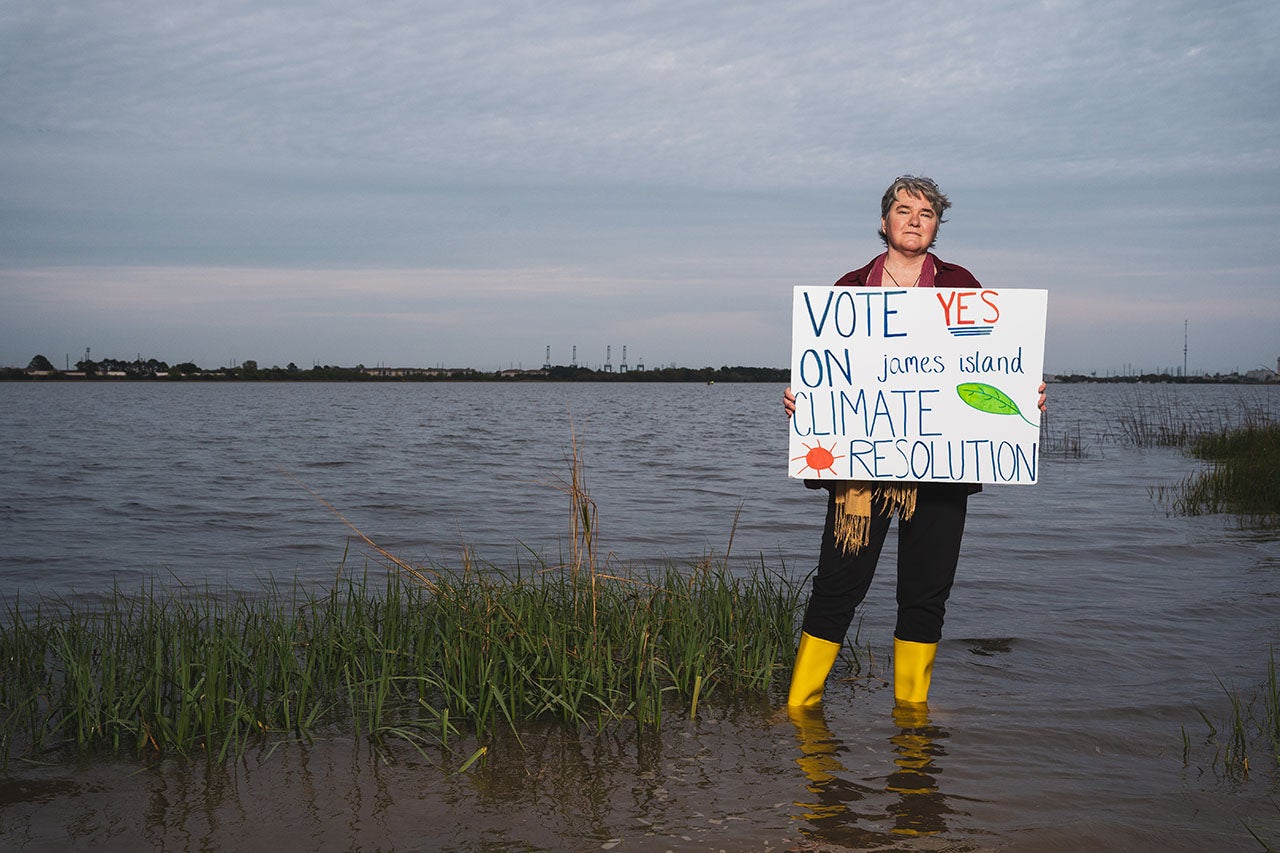When College of Charleston psychology Professor Jen Wright was a teenager, she and her mother would spend weekends scouring nearby neighborhoods for garage sales, where Wright would find her treasures in the piles of used books. One fortuitous day, she came across a copy of Plato’s Apology, and it changed the trajectory of her life.
“I was really, really captured by this story of this man who was willing to stand up to his fellow citizens and willing to go to his death in the interest of this thing that he seemed to have such a clear grasp on,” says Wright, “which is this idea of justice – of being moral and doing what’s called for. That’s the most important thing we can do in the world.”
Or for the world, in this case.
In 2018, Wright was reading the Intergovernmental Panel on Climate Change (IPCC) report while on her bus commute to campus. As she absorbed the depressing assessment about the dangerous consequences of a rapidly warming planet, she knew she had to do something. And what better place to start than the College of Charleston community?
“Universities are well placed to be change agents,” says Wright. “They have interdisciplinary expertise and a captive audience of students who become decision-making adults.”
Wright addressed that captive audience – first at a rally on the psychology of climate change, then in a course she taught that had students develop report cards for universities that wanted to be climate stewards.
Later, in January 2020, she was approached about co-chairing a local climate group. Well, hell, she thought, my plate’s full, but I can’t in good conscience not do it. Shortly after, the Charleston Climate Coalition (CCC) was born.
In some ways, Wright’s work with CCC fits in perfectly with her interest in exploring why certain people are moral exemplars who stand up to do the right thing and how real people navigate the concept of goodness. The volunteers who run CCC can be seen as a study of those who want to make the world a better place. They work tirelessly to educate municipalities and advocate for positive climate resolutions and environmental justice projects to build a just and equitable future.
While the pandemic put a halt to rallies and community activities, members of the group, including famed sportswriter Gary Smith, have continued to sit in on city meetings, present research and amplify voices of under-resourced communities. So far the CCC has been successful – helping both James Island and Charleston County pass resolutions to combat climate change.
Most recently, members of CCC worked with the City of Charleston and other community stakeholders to draft a climate action plan, which calls for a 50 percent emission reduction by 2030. Several subcommittees put in hundreds of hours of research, working together to make recommendations on climate-conscious initiatives like a green-building incentive program, energy efficiency financing, a bikeable city and migration buffers for wetlands. In May, Charleston City Council voted unanimously to pass the plan.
“The people who show up always have full plates, but we always find ways to make more room, because you have to,” says Wright. “That’s part of the puzzle of being someone who is trying to make the world more compassionate and protect the planet. Whatever we are trying to do, you make the space. It’s exhausting, sure, but it feeds your soul.”




